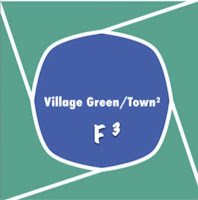We have seen this before, and not that long ago. The brutal violence of police towards Black Americans followed by the swift demonization of their victims. It starts with photos released to the public. They’re never graduation or prom photos or family scenes. The faces that look at us from news stories have been carefully selected: expressions and clothing suggesting to us that this was a dangerous person, or, at the very least, questionable.
And by now we know what’s coming next. No matter how unspeakable the treatment at the hands of police, we are told to look away and to justify it: he was no angel.
We know what that means: blame the victims. They deserved it.
I have come very late in life to understanding how these things work and I have become convinced that if we say we have standards (as to how police treat people they believe to be suspects) then they must apply to everyone. Honestly until about ten years or so ago I thought they did apply to everyone. I was ignorant.
We must never allow agents of our government to be able to commit atrocities and excuse it by saying: he was no angel. I want members of law enforcement to follow safe and ethical protocol across the board. If I don’t expect my kid to be executed for selling loose cigarettes or running from the police, then that shouldn’t be the expectation for anyone else.
If we have morals they should not be movable.
But they are. This is probably the greatest disappointment of my adult life. Idealism can get you a long way if you are white and have had many opportunities to learn and work and sit at tables with people who actually listen to you. If you want to believe that everyone has those opportunities it may take you a long time to truly “get it” that they do not.
And this, sadly, brings us to Gaza. Money coming from our government enables the Israeli military to commit horrific atrocities upon Palestinian civilians. Women and children. Newborns.
We are told to look away because this is, somehow, different. These are really bad people. Different than people like us.
They were no angels.
Isn’t that always the way when we don’t want to follow our own moral code? Dehumanize the enemy.
It’s true that Hamas has committed violence against Israelis. That is undeniable. But in Israel’s response I have watched as every standard for what is acceptable in military action is violated and practically mocked. What is the point of having such ethical guidelines? Why did human beings work so hard to create them? These are not kindly suggestions from some idealistic committee far removed from hardship. Weren’t they born from first hand experience of the worst that humans could do to eachother?
Don’t they mean that we all have an obligation to adhere to them to prevent unleashing what the worst of humanity looks like?
But no, my friends. It seems our morals are moveable. Under pressure they will not hold.
In response to some of the heartless mockery of Guz Walz, the neurodivergent son of Vice Presidential candidate Tim Walz, a friend of mine said:
I find it so profoundly sad when people can’t recognize a loving family when they see one.

Comments
Post a Comment